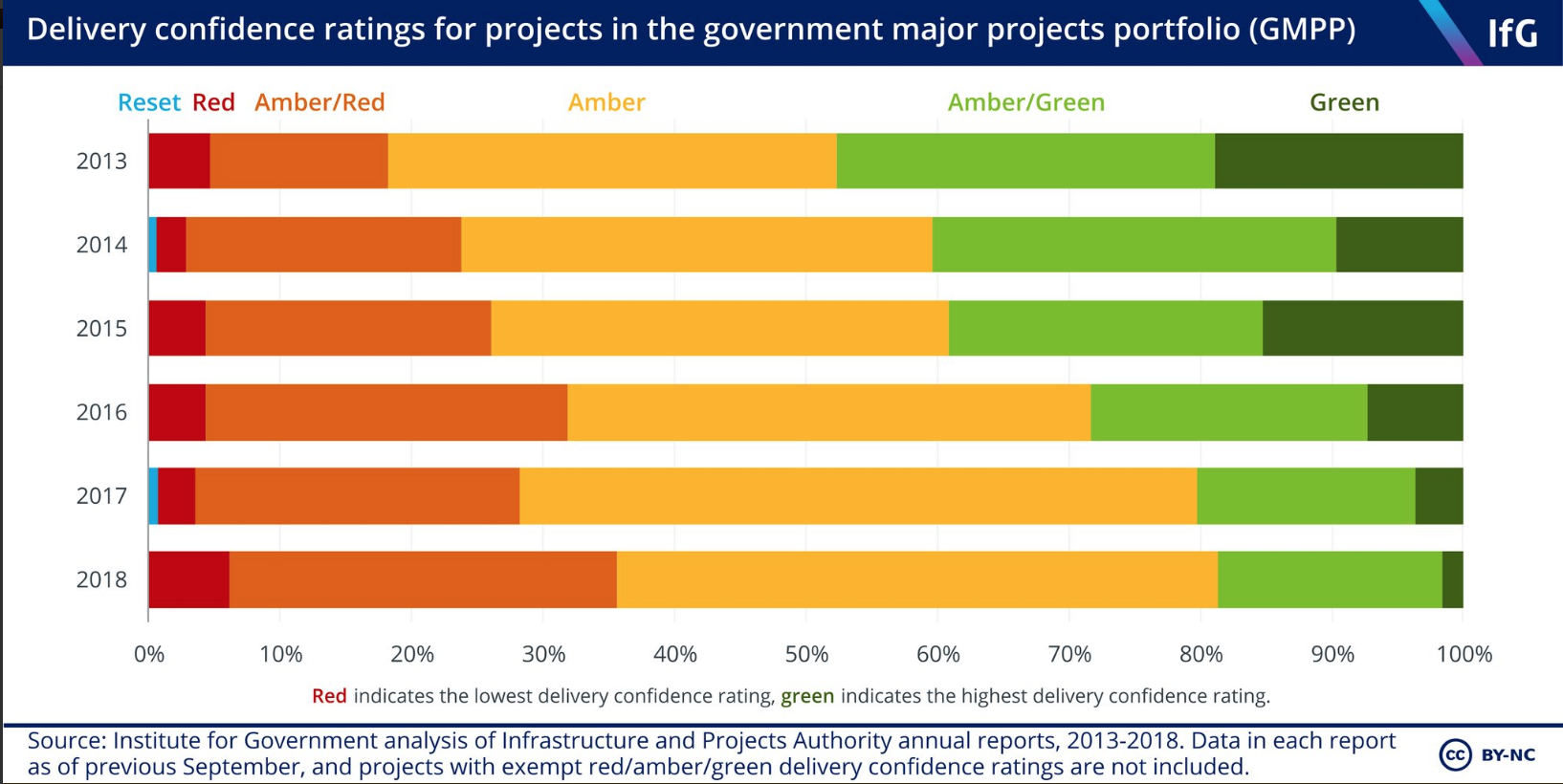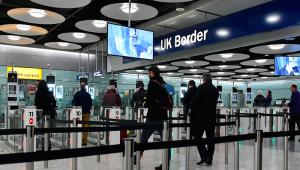Less than 20% of Whitehall’s major projects portfolio are considered ‘likely’ to be delivered in time and on budget, according to analysis by the Institute for Government released today.
This compares to nearly half of all projects ‘likely’ to be delivered in time and on budget in 2013.
Projects deemed ‘in doubt’ or ‘unachievable’ have gone from 20% of all projects in 2013 to 36% in 2018, according to the groups’ analysis of the government’s Infrastructure and Projects Authority annual reports. There were 130 project government projects running in 2018, the IFG said.
[Story continues below graph]

Key: red indicates the lowest delivery confidence rating, green indicates the highest delivery confidence rating
John Manzoni, chief executive of the civil service, said at an event unveiling the Whitehall Monitor 2019 report, said Whitehall was being but through “an extraordinary set of tasks”.
The civil service was “beginning a process of prioritisation” and that a conversation was needed about which workstreams “are not going to get done” before the UK leaves the EU, he told the audience.
Manzoni added: “Things will of course be bumpy in the event of a no deal, so we want to be completely prepared.”
The prime minister in a speech the House of Commons ruled out taking a no-deal Brexit off the table, after her plan for leaving the EU was rejected by parliament last week.
The IFG warned the government should not neglect its duty to running public services.
The report said: “As well as running public services and managing other business as usual, government departments are currently delivering more than 130 major projects, such as HS2, universal credit and improvements to military capability.
“Brexit has understandably captured a lot of public attention, political focus and civil-service time in recent months. But the government still has public services to run, major projects to deliver, legislation to pass, messages to communicate and many other tasks to take care of whatever the outcome.”
The report noted there were now more civil servants working in Whitehall than at any time before the Second World War.
The number of civil servants has grown every year since the EU referendum in 2016 – from a post-war low of 384,260 in June 2016 to 404,160 in September 2018, the report said.
Gavin Freeguard, programme director at the IfG and speaker at the event, said: “Implementing Brexit has been described as the most challenging peacetime task ever faced by the civil service.”
Freeguard also cast doubt over the prime minister’s assertion that austerity was coming to an end. The think-tank noted that the chancellor was expected to use the 2019 Spending Review to mark the end of austerity.
But Freeguard predicted that outside of the money committed to health spending “most departments are going to see their budgets squeezed for the next few years.”
When questioned on the spending review, Manzoni said: “The Spending Review will happen some time this year, though it’s not obvious when.”
A Cabinet Office spokesperson said: “The Brexit negotiations are a priority for the government and we will continue to recruit and deploy highly skilled staff to deliver on the result of the referendum.
“And we continue to tackle the other issues that matter to people including backing the Long Term Plan for the NHS with an extra £20.5 billion per year by 2023/24, creating a record high employment, and building more new homes.”
Last week, the IfG estimated that turnover of civil servants was costing the government up to £74m a year.











